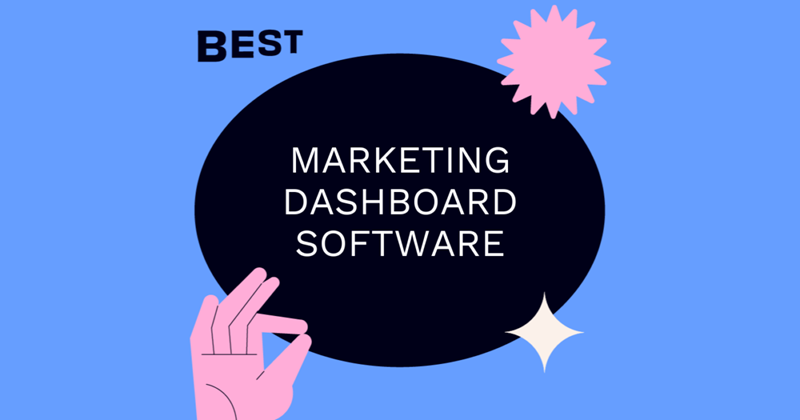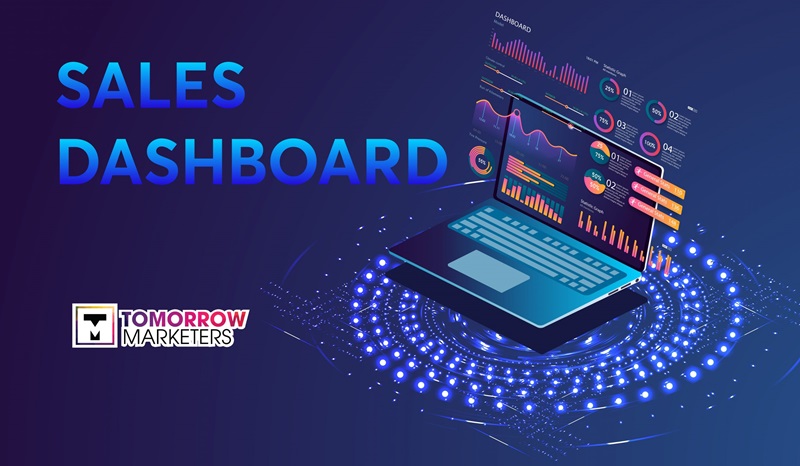Building a content marketing dashboard is essential for tracking and analyzing the performance of your marketing efforts. By creating a dashboard, you can easily monitor key metrics and make data-driven decisions to improve your content strategy. There are several ways to build an effective content marketing dashboard.
First, you should identify the key performance indicators (KPIs) that are most important to your business goals. These could include metrics such as website traffic, conversion rates, social media engagement, and email open rates. Once you have determined your KPIs, you can then start to gather data from various sources, such as Google Analytics, social media platforms, and email marketing tools.
Secondly, it is important to choose the right tools to compile and visualize your data. There are many dashboard tools available that can help you create interactive and visually appealing dashboards. Some popular options include Google Data Studio, Tableau, and Microsoft Power BI. These tools allow you to connect to multiple data sources, customize your dashboard layout, and easily share your insights with team members.
Thirdly, you should regularly update and review your dashboard to ensure that it remains relevant and useful. This may involve setting up automated data feeds, scheduling regular check-ins with your team, and making adjustments to your dashboard as needed. By keeping your dashboard up-to-date, you can stay informed about the performance of your content marketing efforts and make informed decisions about how to improve your strategy.
Another important aspect of building a content marketing dashboard is to establish clear goals and benchmarks for your KPIs. By setting specific targets for each metric, you can easily track your progress and evaluate the effectiveness of your content marketing campaigns. For example, you may set a goal to increase website traffic by 20% over the next quarter or to improve your email open rates by 10%. By regularly monitoring your performance against these benchmarks, you can identify areas for improvement and make data-driven decisions to optimize your content strategy.
Finally, it is important to involve key stakeholders in the development and use of your content marketing dashboard. By including members from different departments, such as marketing, sales, and customer service, you can ensure that your dashboard reflects the needs and priorities of your entire organization. This collaborative approach can help you gain valuable insights, identify new opportunities, and align your content marketing efforts with the overall goals of your business.
In conclusion, building a content marketing dashboard is a crucial step in optimizing your marketing strategy and driving business growth. By identifying key KPIs, choosing the right tools, regularly updating your dashboard, setting clear goals, and involving key stakeholders, you can create a powerful tool for monitoring and improving your content marketing efforts. With a well-designed dashboard in place, you can make data-driven decisions that will help you achieve your business objectives and stay ahead of the competition.

A content marketing dashboard is a tool used by businesses to track and analyze various metrics related to their content marketing efforts. These dashboards typically include key performance indicators such as website traffic, social media engagement, email open rates, and conversion rates.
By monitoring these metrics, businesses can gain valuable insights into the effectiveness of their content marketing strategies and make data-driven decisions to optimize their campaigns. A content marketing dashboard may also include features such as content calendars, campaign tracking, and audience demographics.
These tools help businesses to stay organized, measure progress towards their goals, and identify areas for improvement. Ultimately, a content marketing dashboard serves as a central hub for all of a company’s content marketing data, providing a comprehensive overview of their efforts and enabling them to continuously refine and improve their strategies. By leveraging the power of data analytics, businesses can create more targeted and impactful content that resonates with their target audience and drives results.
Crafting an appropriate content dashboard for your target audience is crucial for ensuring that your message is effectively communicated and received by the right people. To create a successful content dashboard, it is important to first identify who your target audience is and what their interests and preferences are. This will help you tailor your content to meet their specific needs and desires. Additionally, it is essential to gather data and feedback from your audience to better understand what type of content resonates with them. By analyzing this information, you can create a content dashboard that is not only relevant and engaging but also helps to build a strong connection with your audience.
Furthermore, it is important to regularly update and refresh your content dashboard to keep it current and interesting for your audience. By staying on top of trends and changes in your industry, you can ensure that your content remains relevant and valuable to your target audience. Overall, crafting an appropriate content dashboard for your target audience requires a deep understanding of who they are and what they are looking for, as well as a commitment to providing them with high-quality, engaging content that meets their needs and interests.

When it comes to building a content dashboard, there are a variety of approaches that can be taken to achieve success. One approach is to focus on user experience and design, ensuring that the dashboard is visually appealing and easy to navigate. This can involve using clean, modern design principles and intuitive navigation options. Another approach is to prioritize data visualization, ensuring that the content is presented in a way that is easy to understand and analyze.
This can involve using charts, graphs, and other visual elements to convey information in a clear and concise manner. A third approach is to focus on customization and personalization, allowing users to tailor the dashboard to their specific needs and preferences. This can involve offering options for users to choose which metrics to display, how to display them, and how often to refresh the data.
A fourth approach is to emphasize data quality and accuracy, ensuring that the information presented in the dashboard is reliable and up-to-date. This can involve implementing data validation processes, conducting regular audits, and ensuring that the data sources are trustworthy.
Finally, a fifth approach is to prioritize performance and scalability, ensuring that the dashboard can handle large amounts of data and remain responsive even as the user base grows. This can involve optimizing the code, using efficient database queries, and implementing caching mechanisms to improve performance. By exploring these varied approaches, organizations can build content dashboards that are effective, engaging, and valuable to users.
Utilizing specialized platforms can provide individuals with access to a wide range of services and resources that may not be readily available through traditional means. These platforms offer unique opportunities for users to connect with like-minded individuals, access specialized information, and engage in niche activities. By tapping into these platforms, individuals can enhance their skills, expand their knowledge, and explore new interests in a way that is tailored to their specific needs and preferences.
Additionally, specialized platforms can serve as a valuable tool for professionals looking to network with others in their field, collaborate on projects, and stay up-to-date on industry trends.
Whether it be a platform for artists to showcase their work, a forum for fitness enthusiasts to share workout tips, or a marketplace for vintage collectors to buy and sell rare items, specialized platforms offer a wealth of resources for users to explore and engage with. With the ever-growing number of specialized platforms available, individuals have more opportunities than ever to connect with others who share their passions and interests, making it easier than ever to find a community that aligns with their unique needs and preferences.
By utilizing specialized platforms, individuals can unlock a world of possibilities and tap into a wealth of resources that can help them achieve their goals and aspirations. Whether it be for personal growth, professional development, or simply for enjoyment, specialized platforms offer a valuable avenue for individuals to connect, learn, and thrive in an increasingly digital world.

Creating your own content dashboard using RSS and automation tools can be a game-changer for anyone looking to streamline their content consumption process. By utilizing RSS feeds from your favorite websites and blogs, you can centralize all of your content in one place, making it easier to stay up-to-date on the latest news and trends.
Automation tools such as IFTTT or Zapier can help you automate the process of pulling in content from different sources and categorizing it based on your preferences. This not only saves you time but also ensures that you never miss out on important updates or articles.
One of the key benefits of creating your own content dashboard is the ability to customize it to suit your specific needs and interests. You can choose which sources to pull content from, set up filters to weed out irrelevant information, and organize your dashboard in a way that makes sense to you. This level of customization allows you to create a dashboard that is tailored to your unique tastes and preferences, ensuring that you are only presented with content that is relevant and valuable to you.
In addition to streamlining your content consumption process, creating your own dashboard can also help you discover new sources of inspiration and information. By pulling in content from a variety of sources, you expose yourself to different perspectives and ideas that you may not have come across otherwise. This can help you stay informed on a wide range of topics and spark new ideas for your own content creation efforts.
Overall, creating your own content dashboard using RSS and automation tools is a powerful way to take control of your content consumption process and stay informed on the latest news and trends. By customizing your dashboard to suit your specific needs and interests, you can save time, discover new sources of inspiration, and ensure that you never miss out on important updates or articles.
In today’s digital age, having access to real-time data is crucial for businesses to make informed decisions and stay ahead of the competition. Developing a tailored content dashboard that leverages API data is a powerful tool that can provide companies with valuable insights into their target audience’s preferences and behaviors.
By integrating various APIs into the dashboard, businesses can aggregate data from multiple sources, such as social media platforms, website analytics, and customer relationship management systems, to create a comprehensive view of their online presence.
This allows companies to track key performance indicators, monitor trends, and identify opportunities for growth. Additionally, a tailored content dashboard can help businesses streamline their content creation process by providing valuable feedback on the effectiveness of their marketing campaigns. By analyzing API data, companies can identify which types of content resonate with their audience, allowing them to create more engaging and personalized marketing materials.
Overall, developing a tailored content dashboard leveraging API data can help businesses optimize their digital marketing strategies, increase customer engagement, and drive more conversions. This innovative approach to data analysis can give companies a competitive edge in today’s fast-paced, data-driven marketplace.
Utilizing ready-to-deploy or pre-built content marketing dashboards can be a game-changer for businesses looking to streamline their marketing efforts. These dashboards offer a convenient and efficient way to track and analyze key metrics related to content performance, audience engagement, and overall campaign success.
By leveraging these pre-built tools, businesses can save valuable time and resources that would otherwise be spent on manual data collection and analysis. Additionally, these dashboards often come equipped with customizable features that allow users to tailor the dashboard to their specific needs and goals.
This level of customization can help businesses make more informed decisions and optimize their content marketing strategies for maximum impact. Furthermore, ready-to-deploy dashboards can provide real-time insights and updates, enabling businesses to stay agile and responsive in today’s fast-paced digital landscape. Overall, utilizing pre-built content marketing dashboards can be a smart and strategic move for businesses looking to stay ahead of the competition and drive meaningful results through their content marketing efforts.
Building a personalized content dashboard through manual data exports can provide a tailored experience for users seeking specific information. By extracting data from various sources and consolidating it into a single dashboard, individuals can easily access and analyze the information that is most relevant to them.
This process allows for greater customization and control over the content that is displayed, enabling users to make informed decisions based on the data presented. Additionally, manual data exports can offer a more flexible and adaptable solution compared to automated systems, as users have the ability to select and export only the data they need.
This level of customization can lead to more efficient and effective decision-making processes, as users can focus on the data that is most important to them without being overwhelmed by excess information. Overall, constructing a custom content dashboard through manual data exports can result in a more personalized and user-friendly experience for individuals seeking to access and analyze data from multiple sources.
As we come to the end of our discussion, it is important to remember that ethical considerations play a crucial role in shaping our decisions and actions. It is essential to reflect on the impact of our choices on others and the world around us. By taking the time to think critically about the consequences of our behavior, we can strive to make decisions that align with our values and beliefs.
While it can be challenging to navigate moral dilemmas, it is worth the effort to ensure that we are acting in a way that is consistent with our principles. Ultimately, our final thoughts should be guided by a commitment to integrity and responsibility.
By holding ourselves accountable for our actions and seeking to do what is right, we can contribute to a more just and compassionate society. Let us remember that our choices matter and that we have the power to make a positive impact in the world. As we move forward, let us strive to make decisions that reflect our values and promote the well-being of all. In conclusion, let us approach each situation with mindfulness and compassion, recognizing the importance of ethical considerations in shaping our final thoughts and actions.